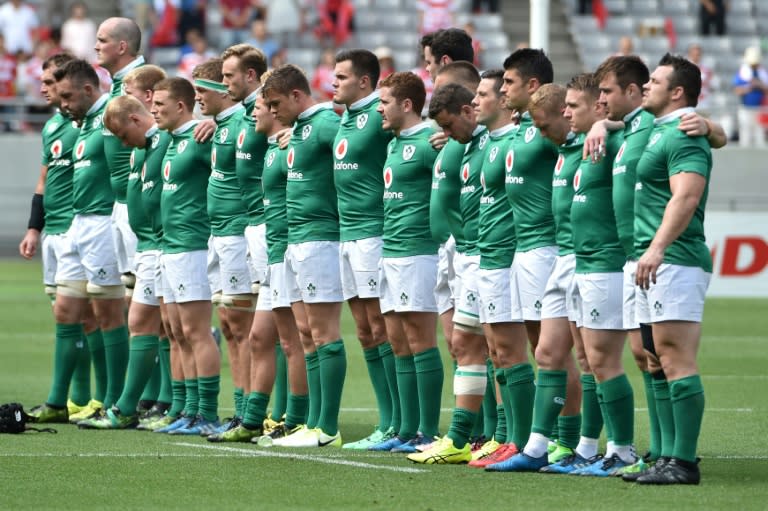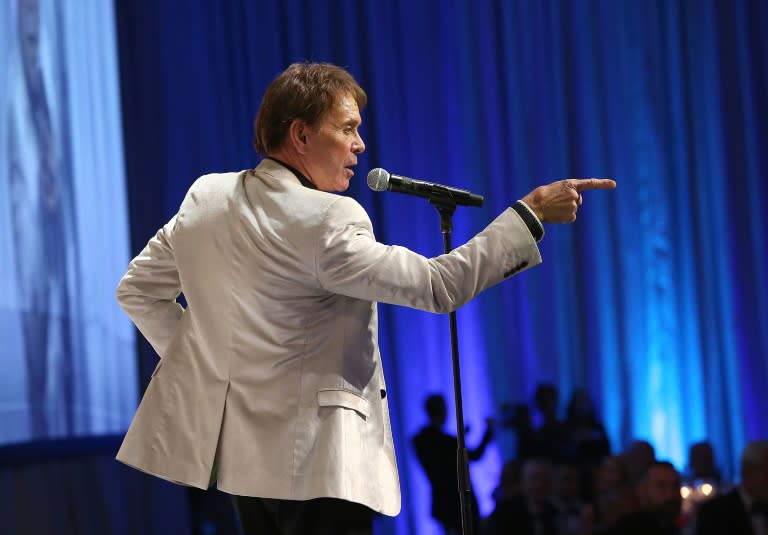Eurovision legend Coulter answers Ireland's Call
Grammy-nominated composer Phil Coulter told AFP his song 'Ireland's Call', which he was asked to compose to allow Northern Irish players to sing alongside their team-mates at home rugby Tests, has become part of the "fibre of life" on the island. The 76-year-old Northern Irishman -- who also composed two Eurovision Song Contest winners in Sandie Shaw's 'Puppet on a String' and Dana's 'All Kinds of Everything' -- says he is proud of the song and does not lose any sleep over the "begrudgers" who have continued to criticise it. Northern Irish players were often seen standing tight-lipped as their southern Irish team-mates bellowed out the Republic's national anthem 'Amhran na bhFiann' (The Soldier's Song). Now Coulter's song is sung alongside the national anthem at home rugby Tests and his composition is also sung on its own at away matches, while cricket and hockey have also adopted it. Things came to a head in 1987 when three Ulster players on their way to a national squad training camp were caught in a deadly blast that killed a senior Northern Irish judge and his wife. One of the players, Nigel Carr, never played again as a result of his injuries. Out of sensitivity the Republic's national anthem was not played at Ireland matches at the 1987 World Cup. "'Ireland's Call' was one of the smartest moves the Irish Rugby Football Union (IRFU) made, having kicked the can down the road," he told AFP in an interview in Cork where he is appearing in a concert. "There were squad players not being able to sing the national anthem and a section of spectators couldn't either who were of the Unionist persuasion. "One of the darkest hours came in the 1987 World Cup when they played Rose of Tralee at the matches and that finally focused their (IRFU) thinking but it took them till 1995 to get round to it. "Absolutely I am proud of it. It is part of the fibre of life here." Coulter, who enjoyed chart success in the United States and says he is the only non-American to have written a number one for Elvis Presley with 'My Boy' in 1975, says the IRFU were also smart in approaching a Northern Irishman to compose it. - 'It doesn't interrupt my sleep' - However, even he -- born in Derry and the son of a Catholic police officer -- had to be very careful in composing the lyrics. "'Wrap the green flag round you' I couldn't use, or 'united we go forward', or 'when I wear the green'," he said. "It was a hard job coming up with something in the lyrics that would say 32 counties... And not 32 counties united. "It needed to be a melody assimilated by spectators to be sung easily. "I finally came up with 'four proud provinces'. It was a provincial game after all and said 32 counties without actually saying it. "That was smart." Coulter, who says 'Ireland's Call' resembles the theme of the song 'Congratulations' he composed for Cliff Richard which came second in the Eurovision Contest, is phlegmatic about the mixed response it got and admitted he had warned the IRFU it would not be initially accepted. "Oh they replied but the soccer crowd have 'Fields of Athenry'," he said. "I said the difference is it has been in the charts for years and they have adopted the song. "As a race we don't like to be told what to sing and I told them it won't be uniformly accepted." Coulter, who says the royalties from 'Congratulations' have "fed, clothed and educated most of my six children", said the song was received most warmly in Ulster. "The people in the north knew it wasn't to replace the national anthem but the conspiracy theorists in the south said 'Coulter is one of those pushy Northerners'. "To this day there are a lot of people who hate the song, think it is crap. "It doesn't interrupt my sleep." Coulter, who dryly remarks the aim with 'Ireland's Call' was not to write lyrics worthy of a Grammy Award, says he really felt the coming of age of the song was when England played Ireland in the Six Nations at Croke Park in 2007. "There was a wariness about if there would be a respectful silence for God Save The Queen which there was," he said. "Then the decibel level rose for the national anthem and it went through the roof for Ireland's Call."



